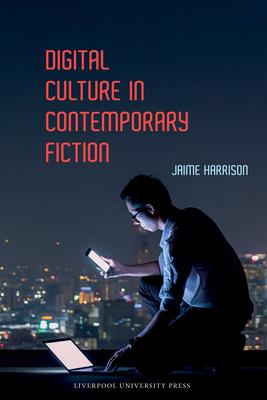What does it mean to be human in a world increasingly determined by algorithms? How can fiction articulate identity and subjectivity in the face of technology which seeks to reduce us to raw data? These questions drive a growing body of fiction about our contemporary moment, written by authors whose interests extend beyond simply writing about digital culture on a surface level but who seek to delve into the computational constructs which underpin it. Through readings of novels by Joshua Cohen, Nicola Barker, and Neal Stephenson, and a visual novel developed by Grasshopper Manufacture, Digital Culture in Contemporary Fiction offers the first analysis of the representation of computational algorithms and their cultural consequences in twenty-first-century fiction. Harrison theorizes a new cultural moment in which he places these authors, one characterized by a turn in software development towards incorporating models derived from behavioural psychology, and vitally fuelled by an abundance of data. Throughout its readings, Digital Culture in Contemporary Fiction traces how each author gestures towards the literary and philosophical hermeneutics of algorithms and, in doing so, defines an emerging tradition of fiction attempting to redefine the novel's relevance within digital culture.

What does it mean to be human in a world increasingly determined by algorithms? How can fiction articulate identity and subjectivity in the face of technology which seeks to reduce us to raw data? These questions drive a growing body of fiction about our contemporary moment, written by authors whose interests extend beyond simply writing about digital culture on a surface level but who seek to delve into the computational constructs which underpin it. Through readings of novels by Joshua Cohen, Nicola Barker, and Neal Stephenson, and a visual novel developed by Grasshopper Manufacture, Digital Culture in Contemporary Fiction offers the first analysis of the representation of computational algorithms and their cultural consequences in twenty-first-century fiction. Harrison theorizes a new cultural moment in which he places these authors, one characterized by a turn in software development towards incorporating models derived from behavioural psychology, and vitally fuelled by an abundance of data. Throughout its readings, Digital Culture in Contemporary Fiction traces how each author gestures towards the literary and philosophical hermeneutics of algorithms and, in doing so, defines an emerging tradition of fiction attempting to redefine the novel's relevance within digital culture.